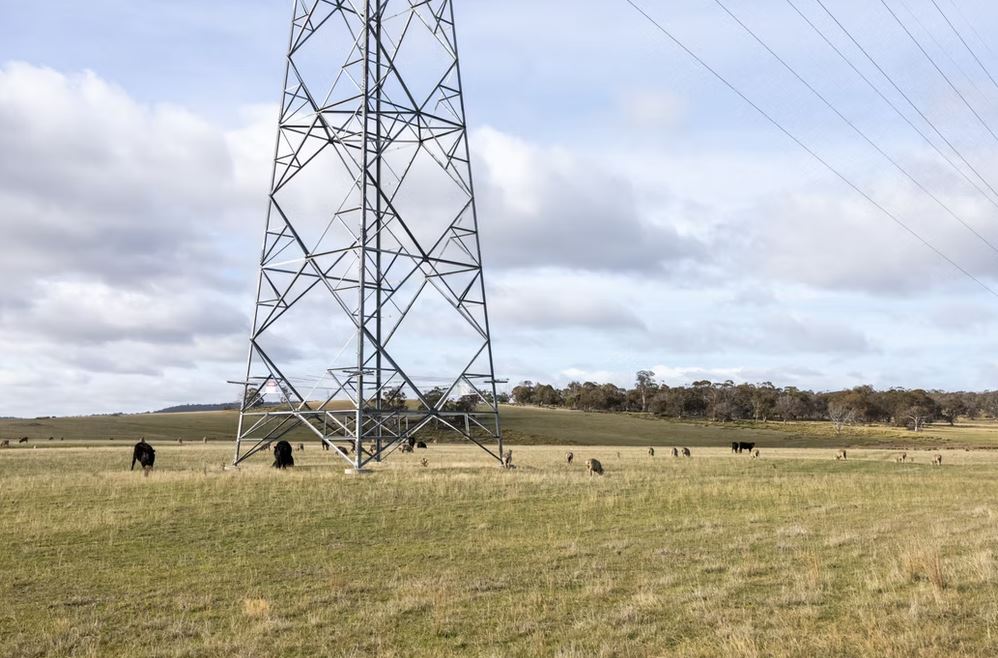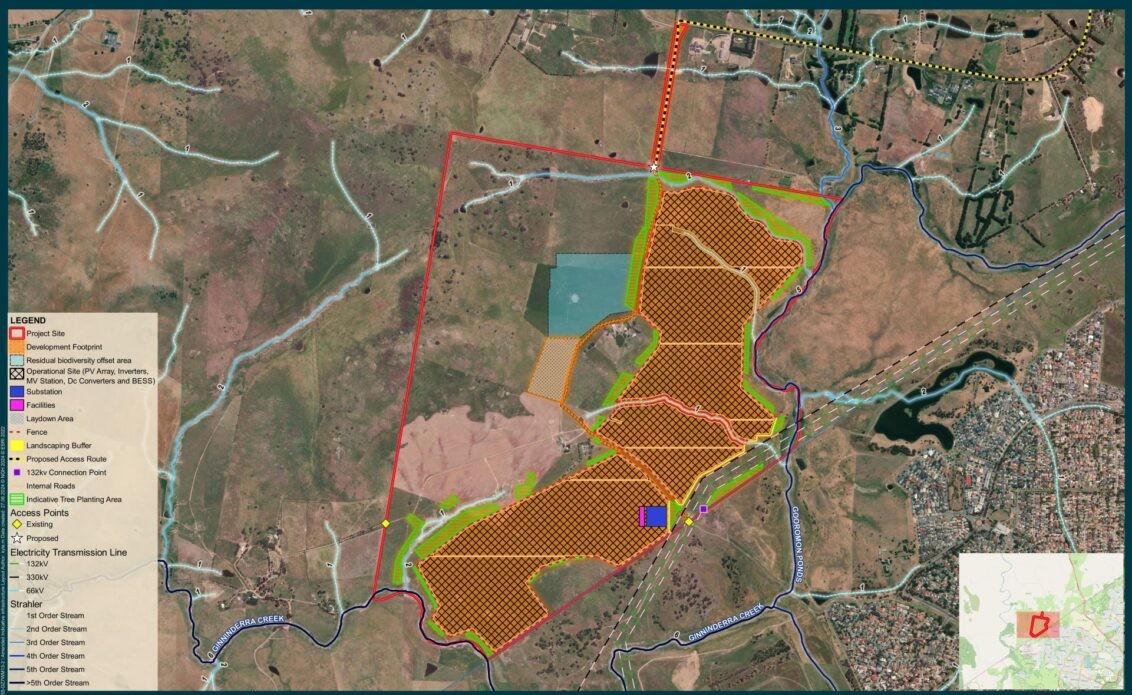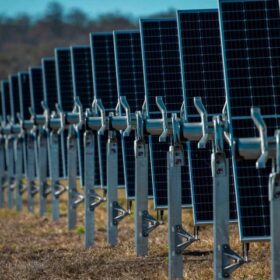Plans to develop a grid-scale solar farm and battery energy storage project in Tasmania’s Central Highlands have joined the queue for assessment under the federal government’s Environment Protection and Biodiversity Conservation (EPBC) Act.
The Weasel solar and battery project proposes to build a 250 MW solar farm alongside a battery energy storage system of up to 144 MW with four hours of storage capacity on a 435-hectare site about nine kilometres north of Bothwell in central Tasmania.
The project, being developed by the Downie family from Dungrove and the Bowden family from Weasel Plains in partnership with Melbourne-based developer Alternate Path, is located within the planned Central Highlands Renewable Energy Zone and would connect directly to the grid via existing 220 kV transmission line running through the site.
In documents submitted to the EPBC portal, the proponents say the project has been carefully designed and planned to avoid environmental impact to the fullest extent possible.
Local landowner Peter Downie said most infrastructure will be located on existing cleared agricultural land and the solar farm will be constructed to enable the continued use of the land for grazing sheep underneath the solar panels.
In their EPBC application, the proponents say “there is increasing research across Australia and internationally on the benefits of agrisolar” including diversification of income due to the addition of renewable electricity production over grazing land, grass management, shading for stock and pastures, and reduced evaporation.
“The proposal vision is to use renewable energy alongside agricultural and forestry practices to generate real and lasting social and economic benefits for Bothwell, surrounding landowners and the state of Tasmania,” Downie said.
The proponents said the project seeks to provide significant community benefits, including direct investment, and employment and local procurement opportunities. It will also contribute to Tasmania’s renewable energy ambitions.
This content is protected by copyright and may not be reused. If you want to cooperate with us and would like to reuse some of our content, please contact: editors@pv-magazine.com.









By submitting this form you agree to pv magazine using your data for the purposes of publishing your comment.
Your personal data will only be disclosed or otherwise transmitted to third parties for the purposes of spam filtering or if this is necessary for technical maintenance of the website. Any other transfer to third parties will not take place unless this is justified on the basis of applicable data protection regulations or if pv magazine is legally obliged to do so.
You may revoke this consent at any time with effect for the future, in which case your personal data will be deleted immediately. Otherwise, your data will be deleted if pv magazine has processed your request or the purpose of data storage is fulfilled.
Further information on data privacy can be found in our Data Protection Policy.